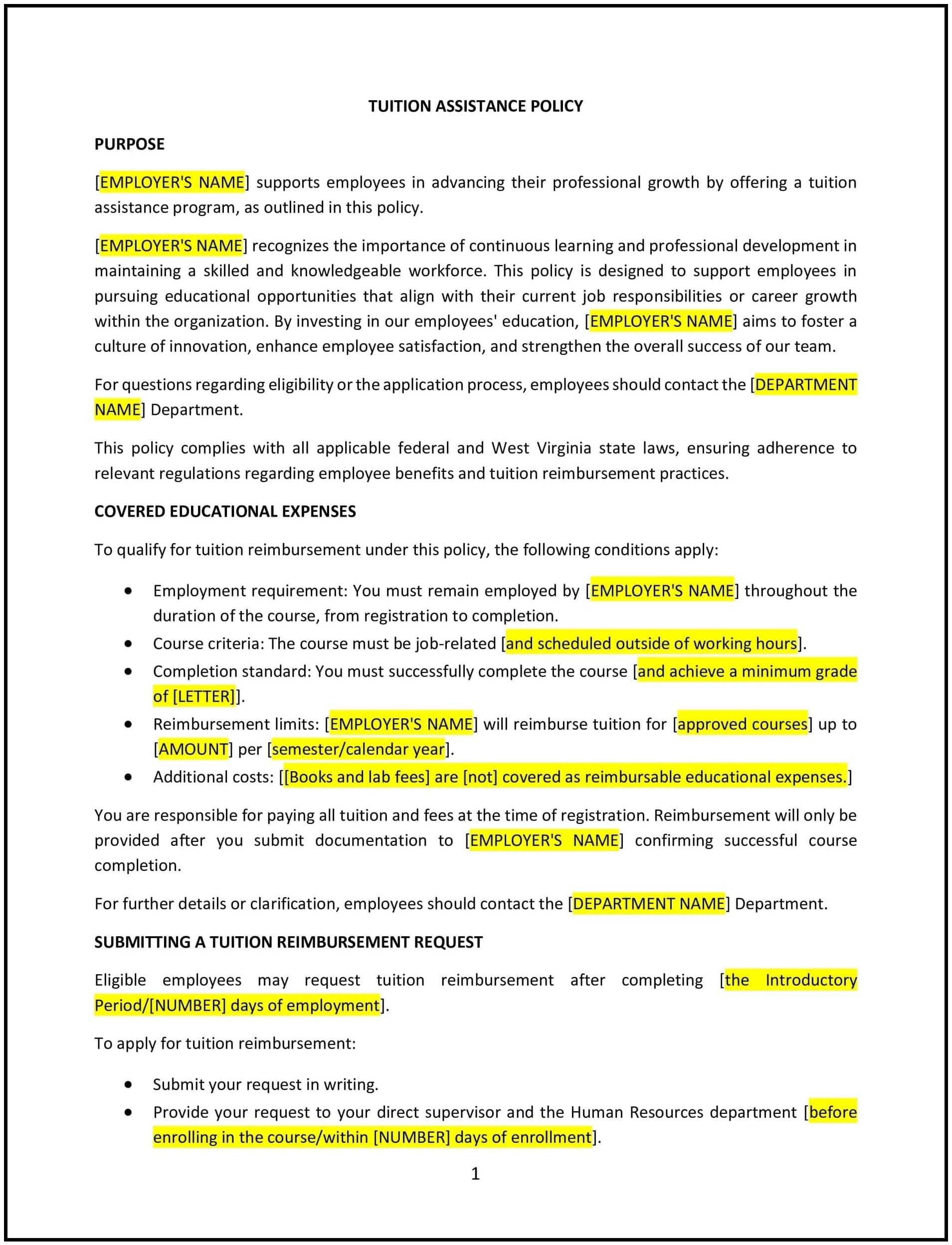Tuition assistance policy (West Virginia): Free template
Got contracts to review? While you're here for policies, let Cobrief make contract review effortless—start your free review now.

Customize this template for free
Tuition assistance policy (West Virginia)
In West Virginia, a tuition assistance policy provides financial support to employees pursuing further education to enhance their skills and contribute to organizational goals. This policy promotes professional development and demonstrates the organization’s commitment to fostering employee growth while maintaining transparency and accountability in managing educational benefits.
The policy outlines eligibility criteria, application procedures, and reimbursement terms for tuition-related expenses.
How to use this tuition assistance policy (West Virginia)
- Define eligibility: Specify the criteria for employees to qualify for tuition assistance, such as length of service, job relevance of the course, or employment status.
- Outline covered expenses: Clarify what expenses are eligible for reimbursement, such as tuition, books, and required course materials.
- Provide application procedures: Detail the steps for applying for tuition assistance, including required documentation, timelines, and approval processes.
- Establish repayment terms: Include conditions for repayment if employees leave the organization within a specified period after receiving tuition assistance.
- Support compliance: Ensure the policy aligns with West Virginia labor laws and federal tax regulations governing educational benefits.
Benefits of using a tuition assistance policy (West Virginia)
- Encourages employee growth: Supports employees in gaining new skills and qualifications that enhance their performance and career development.
- Boosts retention: Demonstrates the organization’s investment in employee development, fostering loyalty and reducing turnover.
- Promotes alignment: Encourages employees to pursue education that aligns with organizational goals and strategic priorities.
- Ensures fairness: Provides clear guidelines to ensure consistency and equity in granting tuition assistance.
- Supports compliance: Aligns with West Virginia laws and federal regulations to promtoe lawful implementation of tuition benefits.
Tips for using a tuition assistance policy (West Virginia)
- Communicate the policy: Share the policy with employees during onboarding and make it easily accessible for future reference.
- Train managers: Equip supervisors to evaluate tuition assistance requests fairly and provide guidance to employees.
- Encourage relevant education: Prioritize courses or programs that directly benefit the employee’s current role or future opportunities within the organization.
- Maintain documentation: Keep detailed records of approved requests, reimbursements, and related agreements to ensure transparency and accountability.
- Review periodically: Update the policy to reflect changes in West Virginia laws, tax regulations, or organizational practices.